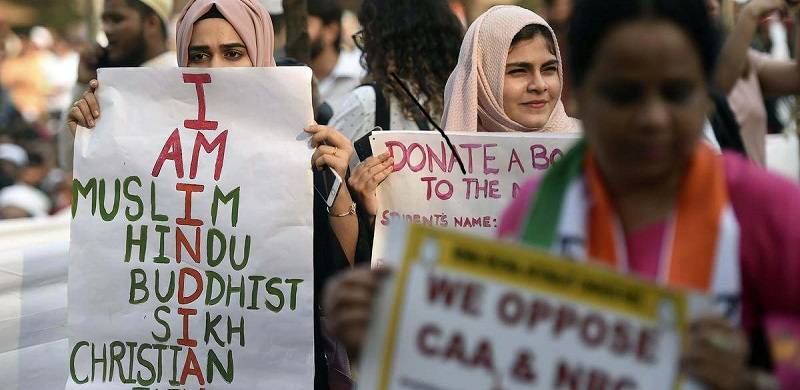
With the publication of the US State Department annual report to the Congress on international religious freedom, Ambassador at Large for International Religious Freedom Rashad Hussain has stated that “some officials” in India are “ignoring or even supporting rising attacks on people and places of worship.” The US State Department report has claimed that in India, attacks on members of minority communities, including killings, assaults, and intimidation, occurred throughout 2021.
US Secretary of State Antony Blinken said the report showed religious freedom and the rights of religious minorities were under threat around the world. The secretary also cited Vietnam and Nigeria as examples of countries where religious expression was being curtailed.
With regard to India, Blinken said, “For example, in India, the world’s largest democracy and home to a great diversity of faiths, we have seen rising attacks on people and places of worship.”
The part of the report that addressed the situation in India stated: “Attacks on members of religious minority communities, including killings, assaults, and intimidation, occurred throughout the year. These included incidents of ‘cow vigilantism’ against non-Hindus based on allegations of cow slaughter or trade in beef.”
The report mentions anti-conversion laws in the country, noting that 28 states already have these laws and arrests were made on such a basis. It also notes that a number of State governments in India have announced plans to introduce their own anti-conversion laws.
India’s official response came from External Affairs Ministry Spokesperson Arindam Bagchi: “We have noted the release of the U.S. State Department 2021 Report on International Religious Freedom, and ill-informed comments by senior U.S. officials.”
The foreign ministry spokesman further wrote on Twitter: "It is unfortunate that vote bank politics is being practiced in international relations. We would urge that assessments based on motivated inputs and biased views be avoided.”
US Secretary of State Antony Blinken said the report showed religious freedom and the rights of religious minorities were under threat around the world. The secretary also cited Vietnam and Nigeria as examples of countries where religious expression was being curtailed.
With regard to India, Blinken said, “For example, in India, the world’s largest democracy and home to a great diversity of faiths, we have seen rising attacks on people and places of worship.”
The part of the report that addressed the situation in India stated: “Attacks on members of religious minority communities, including killings, assaults, and intimidation, occurred throughout the year. These included incidents of ‘cow vigilantism’ against non-Hindus based on allegations of cow slaughter or trade in beef.”
The report mentions anti-conversion laws in the country, noting that 28 states already have these laws and arrests were made on such a basis. It also notes that a number of State governments in India have announced plans to introduce their own anti-conversion laws.
India’s official response came from External Affairs Ministry Spokesperson Arindam Bagchi: “We have noted the release of the U.S. State Department 2021 Report on International Religious Freedom, and ill-informed comments by senior U.S. officials.”
The foreign ministry spokesman further wrote on Twitter: "It is unfortunate that vote bank politics is being practiced in international relations. We would urge that assessments based on motivated inputs and biased views be avoided.”
Our response to media queries regarding the release of U.S. State Department 2021 Report on International Religious Freedom:https://t.co/zlwdjgzoOn pic.twitter.com/rBkJaVpxq5
— Arindam Bagchi (@MEAIndia) June 3, 2022

